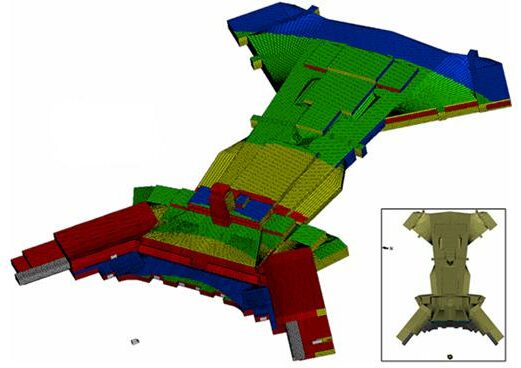Blast & Security Consulting for Airports & Port Authorities
Challenge
Terrorist attacks on mass transit systems, airports in particular, are a major concern of transportation administrators and security officials. While provisions for mitigation of attacks at airports are often incorporated into new airport designs to create a more-integrated approach to protection and resilience, this is not necessarily the case for existing airports.
Given the continual cost constraints airports and aviation authorities face, along with the ease of access demanded by airport patrons, there are always competing interests when it comes to security, for which a balance must be reached. This creates a challenging environment, as aviation facilities may be confronted with an extensive variety of potential threats and scenarios, including hand-carried and vehicle-borne explosives, access of firearms throughout non-sterile areas, hazardous substance release, unique threat locations throughout the facilities and adjacent areas, mass congregation areas, close proximity to auto traffic corridors for passenger drop-off and pick-up, and unique architectural/structural design features for which many airports are known. The unique nature and configuration of airports also presents a challenge for facility evacuation, wherein large numbers of occupants may unintentionally evacuate to higher risk locations.
While more restricted from the general public, ports are faced with the challenge of allowing access to multiple commercial carriers, a large employee population, and the often unverified contents of shipping containers being delivered by ship or train. Additionally, many ports have onsite bulk chemical storage which can be targets for theft or sabotage.
Solution
ARA has assisted over 75 commercial airports across the U.S. in meeting TSA and FAA requirements as well as numerous sea and inland ports, developing balanced and cost-conscious approaches to achieving an increased level of security and resilience for airport and port facilities and operations subject to physical attack.
ARA subject matter experts use a combination of sound engineering, security- and cost-based principles to mitigate damage and subsequent hazards that may result from potential terrorist threats by evaluating potential threats (prescribed or derived) that may be deployed against the people, buildings, infrastructure or operations of concern; identifying corresponding vulnerabilities, and determining the potential impact and related degree of damage from such threats; developing appropriate mitigation designs, countermeasures, and other recommendations for risk reduction considering the needs and vision of the airport or port, and potential implementation cost; and providing associated consulting support services which serves to facilitate and/or supplement implementation of the recommendations, as needed.
ARA experience with these facilities includes: evaluating the overall threat picture and the security posture and criticality of the facilities; the capacity of existing facilities and countermeasures to withstand aggressor tactics; and development of potential upgrade options and operational security improvements to enhance the level of protection and increase physical and operational resilience. Given the depth and breadth of capabilities and experience in security engineering and applied sciences, including a full range of advanced CBRNE, ballistic, and evacuation design and planning capabilities, ARA is uniquely qualified to provide these services for even the most challenging threats and conditions to help protect people, facilities, operational capability, and critical equipment/systems that support the national airspace infrastructure and port intermodal operations.

